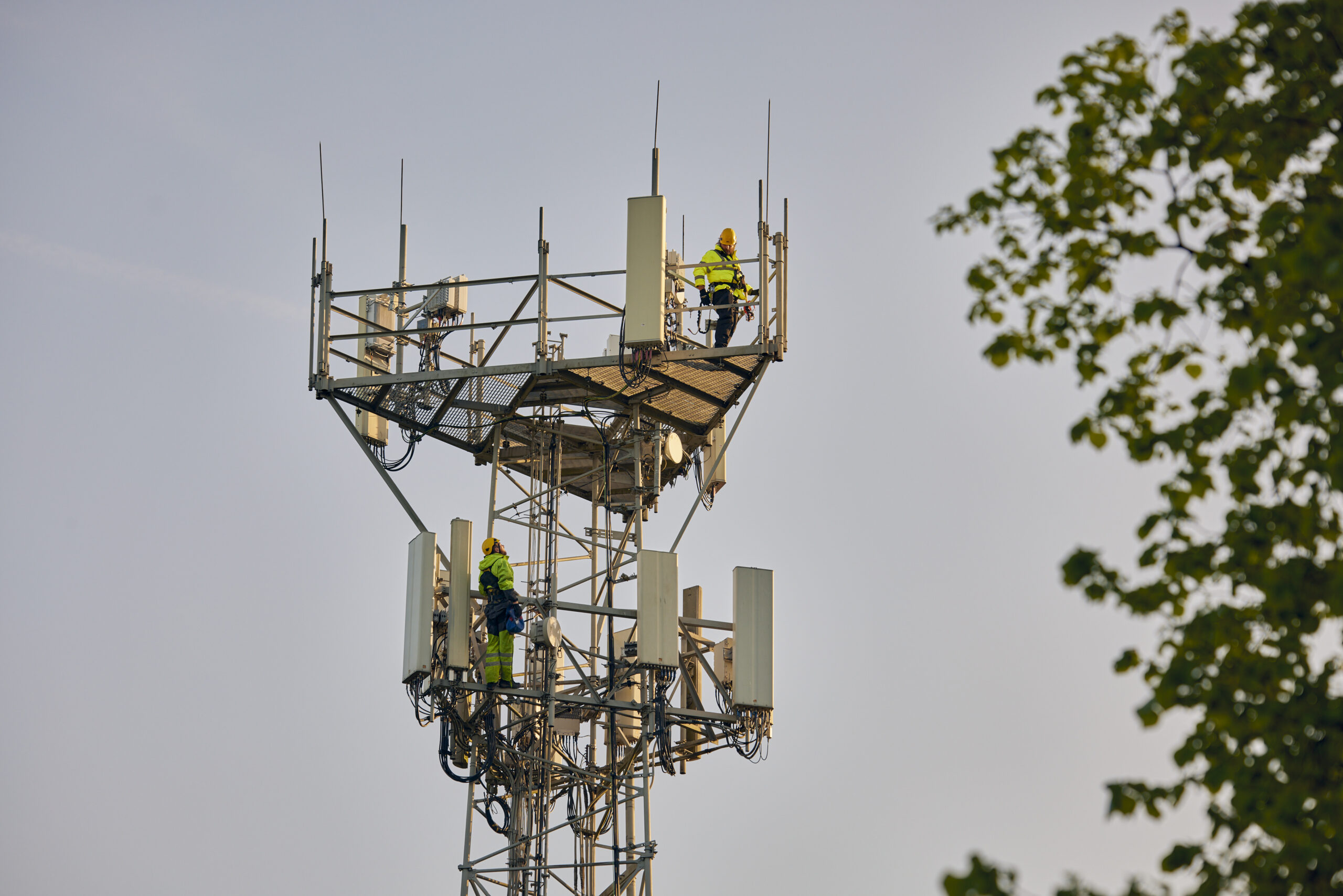Vodafone launches 5G Standalone connectivity over its standardised Mobile Private Network solution to offer ultra-low latency, high availability connectivity to power businesses into the future.
- Vodafone’s Mobile Private Network (MPN) solution now includes 5G Standalone connectivity and is easily paired with a Multi-access Edge Compute solution.
- Mobile Private Networks act as a catalyst for innovation in industries such as manufacturing, transport and logistics, energy and healthcare.
- Thanks to a dedicated local MPN, data is able to be kept on premise or on device edge allowing for a much more customisable and private connectivity solution.
Vodafone has announced its new Mobile Private Network (MPN) offering, becoming the first telecoms operator in the UK to standardise a 5G Standalone MPN product and its approach to deliver across the lifecycle of the solution.
MPNs allow businesses and organisations to customise network performance and characteristics to suit their own connectivity needs. This has great potential to accelerate digitisation and act as a catalyst for economic growth across the UK.
By installing dedicated equipment on-site, the customer can tailor the connectivity experience as only its own devices and applications can connect to the network. MPNs remove risk of network congestion, while network functionality can be customised to use case requirements and security is enhanced as data never needs to leave the customer premises.
MPNs can offer significant benefits across several industries, including manufacturing, healthcare, transport and logistics. MPNs are set up to enable use cases such as asset tracking, drone detection, machine-to-machine connectivity, condition monitoring, augmented and virtual reality and many more.
Most importantly, an MPN allows the creation of services with specialist requirements that would not be possible on the public network.
5G: Everything you need to know
If you have questions about 5G, from Standalone to mmWave, then our regularly updated guide has the answers.
Nick Gliddon, Business Director, Vodafone UK, said: “Mobile Private Networks are an opportunity for our business customers to accelerate innovation at an unprecedented scale. By installing a private and customisable network, Vodafone can support innovation by cultivating new use cases in an environment which brings the best opportunity.
“That could be delivering on low-latency requirements, enhanced security or enabling massive IoT models. Whatever the use case, Vodafone can deliver a tailored experience to act as a catalyst for innovation.”
Vodafone has already deployed several MPNs across the UK, including:
- Horiba Mira’s test track in Nuneaton, Warwickshire: A secure 5G Non-standalone-enabled MPN that covers two autonomous vehicles testing tracks, with five outdoor masts and on-site MEC.
- Ford’s E:PRIME factory in Dunton, Essex: a 5G network to power autonomous operations and ensure real-time analysis by using AI software to visually inspect automated production lines for electronic vehicle motors and batteries. This deployment has won multiple industry awards including 5G Week and the GLOTEL awards.
Ford unlocks potential of 5G to future-proof electric vehicle production
Ford and Vodafone Business lead consortium to develop the potential of 5G in manufacturing.
- Scotland 5G Centre’s innovation hubs in Aberdeen and Kilmarnock, East Ayrshire: The two 5G MPN sites act as testbeds to develop advanced use cases for segments that include energy and smart cities.
- The Smart Sound Connect in Plymouth, Devon: the worlds’ first marine-focused 5G testbed, powered by a 5G non-standalone MPN to deliver use cases such as driverless boats, connected buoys, clean propulsion, smart ports and shipping, as well as environmental monitoring.
Vodafone, Plymouth City Council and Plymouth Marine Laboratory announce use cases for world’s first 5G marine-focused testbed
Local and international businesses will able to use the testbed for free to create and develop marine 5G use cases.
- Centrica’s natural gas plant in Easington, Yorkshire: a 4G MPN to enable real-time indoor and outdoor monitoring of the plant and its equipment, improving maintenance and safety. Workers will be alerted to any gas emissions, for example, and receive early warnings of any equipment on the point of failure.
Vodafone’s MPN offering includes:
- Indoor and outdoor Radio Access Network (RAN) infrastructure (the mobile sites that connect devices to the network) for private connectivity. 5G non-standalone and 5G standalone connectivity, depending on use case requirements.
- On-site network core infrastructure or access to Vodafone’s core network, including ability to integrate and utilise Vodafone’s Multi-access Edge Compute (MEC) solutions.
- If required, MPN can also be connected to Vodafone’s wider public network.
- Management platform to visualise data across the network and connected applications, optimise and reconfigure network operations and parameters, provision new services and automate functions, applications and operations.
- Enhanced cyber security, with customer sites being managed by the same cyber security team that protects Vodafone’s wider network operations.
- On-going managed services, including 24/7 helpdesk, data insight and analysis, real-time monitoring and early warning intelligence as well upgrades and maintenance advice and support.
- Support to develop use cases and integrate enabling technologies, such as cloud services and Internet of Things solutions.
To develop the services and applications that would make use of private connectivity, Vodafone has also curated several partner ecosystems. These partners include software developers and industry specialists who work alongside Vodafone to co-create industry-specific solutions.
Stay up-to-date with the very latest news from Vodafone by following us on Twitter and signing up for News Centre website notifications.
– Ends –
Notes to Editors
What is a Mobile Private Network?
Mobile Private Network (MPN) is a dedicated business network that allows businesses to interconnect people and things using 4G and or 5G technology. While enabling new applications, MPNs can also support companies’ existing business-critical services with a local network on their premises, providing secure and reliable connectivity. It serves as an alternative to WiFi, but differs from a public mobile network by providing private reserved coverage that is subject to agreed performance and local, protected data flow.
What advantages do MPNs offer over public network connectivity?
MPNs are separate from the mobile network that connect everyday smartphones. This has several advantages:
- Removes the risk of network congestion due to too many devices connecting to the network at the same time. MPNs are private, so the customer can control what devices and applications connect to the network.
- With connectivity and core/MEC technology on-site, data never has to leave the customer premises to be processed or stored. This is more secure.
- The public network is a homogenous experience which was initially designed to connect smartphones. MPNs can be configured to support specialist use cases and more advanced connectivity requirements. Some of the elements that can be configured include thresholds on upload and download speeds, as well as areas such as latency.
What is the difference between 5G Standalone and the 5G connectivity services customers can experience today?
5G non-standalone (what customers can experience today) consists of 5G radios sitting on an existing 4G network. It offers speed upgrades, but is still restricted in performance by the underlying 4G technology.
5G Standalone is an end-to-end 5G solution, from the core to the radio units. The upgraded infrastructure allows telecoms operators to realise the benefits of 5G which have been spoken about at length for many years, as well as deliver new services that would otherwise be impossible.
What does latency mean?
Latency is an expression of how much time it takes for a data to travel from one designated point to another. Ideally, latency will be as close to zero as possible. Network latency can be measured by determining the round-trip time (RTT) for data to travel to a destination and back again.
As many applications on your smartphone depend on the cloud, they have to communicate with a data centre to function properly. The further away your device is from the data centre, the longer it takes for the application to react. This is known as latency, otherwise known as buffering.
What is Multi-access Edge Compute (MEC) technology?
MEC technology allows for data to be processed without having to transfer that data to a far-off data centre. With specialist servers installed in either Vodafone or customer locations, rather than in traditional data centres, the distance data has to travel to be processed is reduced. This then reduces the amount of time it takes for an application that relies on that processed data to react to a command. A lower Round-Trip Time (RTT) leads to lower latency.
By reducing the latency of applications, new use cases can function safely and as designed. One example is an autonomous vehicle.
With traditional network infrastructure, it could take between 50-140 milliseconds for the vehicle to react to a change in the environment. This is because a sensor would detect a change in the external environment (e.g. a person crossing the street), send this information to be processed in a data centre, which could be hundreds of miles away, reacting only when the data has been processed and sent back to the vehicle.
By using specialist MEC servers installed on the ‘edge’ of the network, the Round-Trip Time is significantly reduced, allowing the vehicle to react faster. This could be as fast as sub-10 milliseconds in an optimal Dedicated MEC environment, using MPN 5G Standalone connectivity on the customer’s premises. This vastly improves the performance and safety of the autonomous vehicle.
How is multi-access edge compute (MEC) technology relevant to 5G Standalone?
MEC is a complementary technology to 5G Standalone as it enables real-time responsiveness of applications on your smartphone, or other internet-connected devices.
Separately, both MEC and 5G Standalone both offer significantly improved latency (the responsiveness of the application), but together the experience is even better. With both MEC and 5G Standalone, users could expect applications to react faster than the human brain is capable of processing information. This capability would be incredibly valuable for any autonomous operations or processes, such as self-driving cars or user authentication to prevent fraud.
What more can the Government and Ofcom do to support the mobile industry in deploying 5G Standalone?
Ofcom has already begun a consultation into net neutrality rules, which Vodafone supports.
There are also other barriers to entry which the Government and Ofcom need to address, such as business rates to support network investment and ensure there is a funding mechanism that enables investment in resilience.
The UK Government and Ofcom have been highly supportive of the telecommunications industry to date; this is evident from reform in the fixed broadband market, which is now attracting investment and accelerating the deployment of full-fibre broadband networks across the UK.



![Young woman using smartphone while walking in the evening on Xmas Christmas Eve [Adobe Stock]](https://www.vodafone.co.uk/newscentre/wp-content/uploads/2025/12/Young-woman-using-smartphone-while-walking-in-the-evening-on-Xmas-Christmas-Eve-Adobe-Stock.jpg)

![Queensway tunnel entrance[Adobe Stock] Queensway tunnel entrance, Mersey Tunnels.](https://www.vodafone.co.uk/newscentre/wp-content/uploads/2025/11/Queensway-tunnel-entranceAdobe-Stock.jpeg)